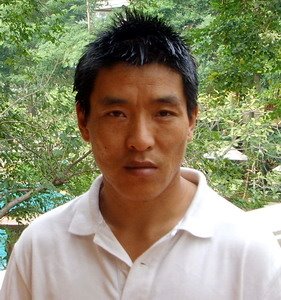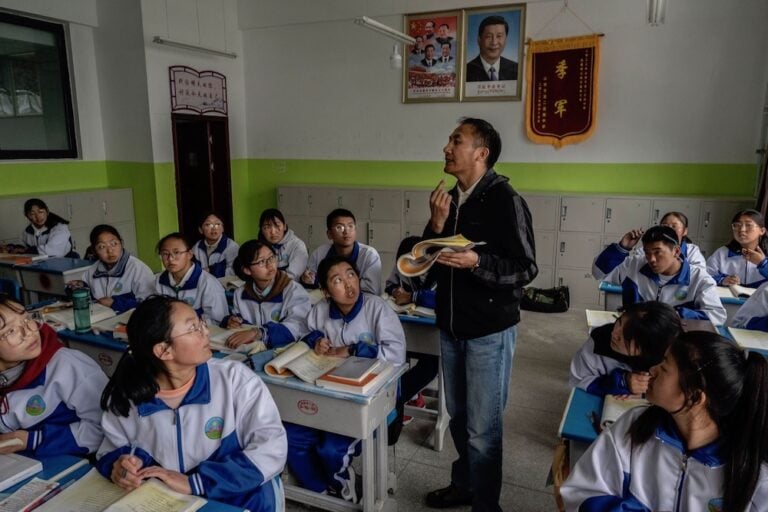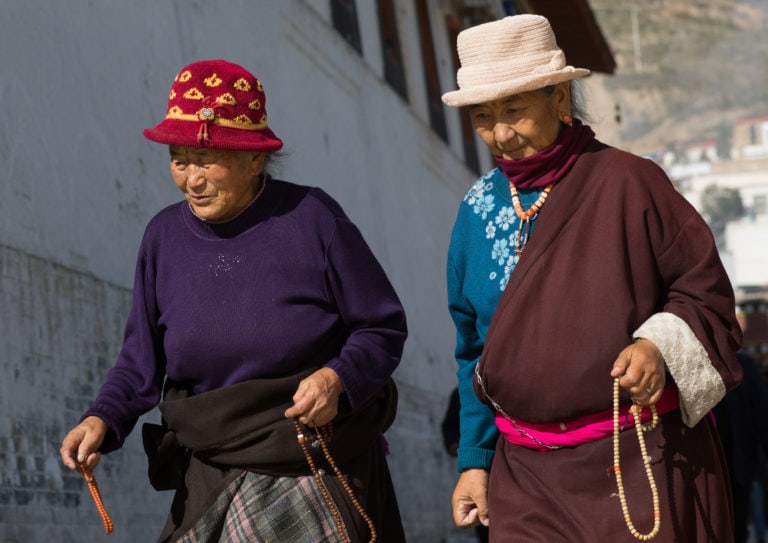Help the Committee to Protect Journalists reach 10,000 signatories on its petition calling on the Chinese president to immediately release Dhondup Wangchen, unjustly serving six years in prison.
New York, November 5, 2012 – The Committee to Protect Journalists (CPJ) has created a petition that calls on Chinese President Hu Jintao to immediately release unjustly imprisoned Tibetan journalist Dhondup Wangchen.
Wangchen is one of four international journalists who have risked their lives to reveal abuses of power and was honored with CPJ’s 2012 International Press Freedom Award on November 20. He did not attend the awards ceremony; instead, he will spend yet another night in a cold prison cell.
Please sign the petition, and help release this brave journalist and human rights defender!
Watch “Leaving Fear Behind”, a video on Tibetan life under Chinese rule. The documentary was conceived and shot by Dhondup Wangchen in 2008:
The full text of the petition follows:
To Chinese President Hu Jintao
We call on the Chinese government to free Dhondup Wangchen, a self-taught Tibetan filmmaker who is serving a six-year prison term for inciting separatism. Why? Because he documented Tibetan life under Chinese rule in “Leaving Fear Behind,” a documentary he conceived and shot in 2008. The film was produced and released by Switzerland-based film company Filming for Tibet and can be viewed on their website.
Dhondup Wangchen knew the risks. He moved his wife, Lhamo Tso, and four children to India to protect them in case he was arrested. Yet he chose to interview Tibetans on camera because he felt their voices should be part of the conversation in the run-up to the Beijing Olympics in China in 2008 – regardless of the personal cost.
The Committee to Protect Journalists is honoring Dhondup Wangchen with a 2012 International Press Freedom Award because we believe he should not have to pay that terrible price. We hope that the recognition that comes with this honor will show China that all charges against Dhondup Wangchen should be unconditionally dropped. Filming a documentary is not a crime. Wangchen should be released from prison immediately.
The situation in Tibet is deteriorating, and Chinese authorities are working hard to keep it from the international spotlight. International journalists are barred, except on government-controlled tours. Independent coverage of ethnic tensions in the region is quickly censored in the Chinese media.
Tibetan journalists face harsh punishments. Before Dhondup Wangchen, no Tibetans were jailed for reporting. Now, at least 9 other Tibetan journalists besides him are behind bars, often for inciting separatism – the same charge Chinese state media level against the Dalai Lama and his “clique.” Deprived of a voice, Tibetans seek more and more desperate ways to communicate. More than 50 Tibetans have self-immolated in protest against Chinese rule in the past three years, according to The Associated Press.
This trend has implications beyond Tibet. At least seven ethnic Uighur journalists are also jailed. Freedom for Dhondup Wangchen would be the first step toward freedom for all ethnic minority journalists struggling to shed light on tensions with the Chinese state.
By supporting Dhondup Wangchen, you are sending a message to Chinese authorities that his efforts to speak on behalf of an oppressed community were not wasted. Those who courageously agreed to speak with him have found an audience. And that audience will not rest until Dhondup Wangchen is freed.



